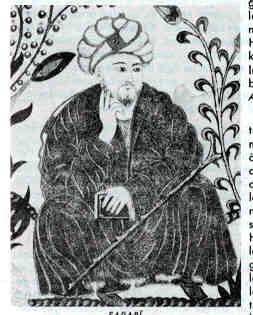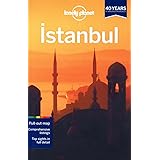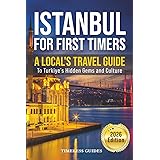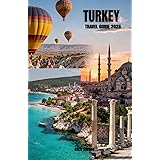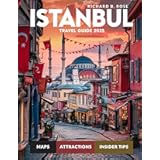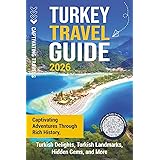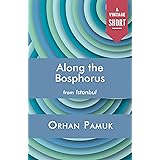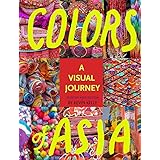FARABI
IBN SINA
Ghazali
Turkish Manuscripts Institution Publications
Science and Philosophy Series
http://www.yek.gov.tr/Link/ShowLink?LINK_CODE=58&LAN_CODE=TR
Kitâbu’l-Burhân/Fârâbî
Fârâbî (d. 339/950), who has a founding role in the tradition of Islamic philosophy, is one of the unique philosophers who produced original and creative products in almost all fields of philosophy. Most of his works are about logic, and the main logic studies in the Islamic world started with him. Fârâbî, who was very knowledgeable in the logic tradition before him, wrote many commentaries on the logic works of Aristotle, “Ilk Muallim” (Mu’allim-i Evvel), as well as wrote many original and effective stand-alone works and wrote the “Second Teacher” (Muallim). -i Sânî) title.
Fârâbî’s work Kitâbü’l-Burhân (Second Analytics) constitutes the starting point of his logic, and even, it can be said, his entire philosophy and philosophical project. Because, he places an essential function on demonstration, which gives accurate and precise information and constitutes the ideal method of philosophy, in the process of philosophical construction, and also places evidential thinking on the foundation of the virtuous social order that he dreams of establishing.
Book of Letters
| Title of Work | Kitâbu’l-Hurûf |
| its author | Al-Farabi |
| Translator | Omer Turker |
| Original Language | Arabic |
| Category | Science and Philosophy Series |
| Publication Type | Translation , Text |
| Release Year | 2015 |
| ISBN | 978-975-17-3790-8 |
| Dimensions | 336 p., 23.5 x 16.5 |
|
Fârâbî (d. 339/950), who has a founding role in the Islamic philosophy tradition, is one of the unique philosophers who produced original and creative products in almost all fields of philosophy. Most of his works are about logic, and the main logic studies in the Islamic world started with him. Fârâbî, who was very knowledgeable in the logic tradition before him; He wrote many annotations on the logic works of Aristotle, who was described as the “First Teacher” ( Mu’allim-i Evvel ), as well as wrote many original and effective independent works and earned the title of “The Second Teacher” ( Muallim-i Sânî ).
In the Book of Letters ( Kitâbu’l-Hurûf) Fârâbî deals with many subjects such as the relationship between language and logic, society and philosophy, with his unique approach, especially on logic and metaphysics. The work begins with the examination of logical/ontological categories, then explains how these categories are expressed in various languages, emphasizing that these categories are universal beyond all local languages. In addition, these categories are examined one by one and in depth, and concepts such as “ore”, “accident”, “thing” and “existence” related to metaphysics and logic are explained in the work. The most important thing is that Fârâbî deals with many views from Metaphysics to Logic, from Logic to sociology and politics with his unique approach in this work. Book of Letters Assoc. Dr. Translated by Ömer Türker.
|
|
Ibn Sina (980-1037): (Uzbekistan) Efşene 980 of Bukhara. Bukhara, Gürgenc 1003, Cürcan 1013, Reyy 1014, Hamadan 1015 and Isfahan 1023-37, Hamadan 1037. Muslim physician, medical textbook author, judge/ Kadı and the most important figure of philosophy inspired by Hellenic culture in Islam. It deeply influenced the Latin-speaking Middle Ages and New Age Persian philosophy. Philosopher, theologian, Hezarfen (very knowledgeable). Author of the Law of Medicine, which for five hundred years remained the classic medical guide in the Islamic world and in Europe. Healing in the Islamic world and Christian Europe
His book and the Book of Liberation had a powerful effect on theology as was its complex affirmations of reason and logic. Ghazali struggled with his theological legacy.
Dânişnâme-i Alâî/Alâi Book of Wisdom/İbn Sînâ
Dânişnâme-i Alaî is a philosophy and logic book written by Ibn Sînâ in Persian. In Danişnâme, which was prepared as a textbook for teaching purposes, sub-topics were given and figures were drawn in order to facilitate comprehension while the subjects were being examined, unlike Avicenna’s other philosophy books. The work, which consists of five parts, deals with the subjects of logic, metaphysics, physics, geometry, astronomy, arithmetic and music, respectively. However, in the complete copies of Danişnâme, only three chapters of the seven sciences, namely Logic, Metaphysics and Physics, were written by Ibn Sînâ; the remaining parts were prepared by his student Abdulvahid Cûrcânî after his death.
The translation of the work by Murat Demirkol was published in parallel with the copy registered at Nuruosmaniye Manuscript Library number 2682. This copy, which was copied by Ayn Ali in 1657, also has an artistic value with its gilded leaves and red and blue rulers.
Al-Isârât ve’t-Tenbîhât/Signs and Admonitions/Ibn Sina
El-İşârât ve’t-Tenbîhât is one of the last works written by İbn Sînâ, one of the most important and influential philosophers of history. Considering the commentaries and annotations made on it, it can easily be said that it is the most influential work of the author on the Islamic World. Written in a very concise style, the work in which the principles and propositions of philosophy will be discussed in the introduction begins with the science of logic, continues with physics, and ends with the metaphysics section.
While the logic section of al-Isârât ve’t-Tenbîhât consists of ten “nehic”, the physics, metaphysics and ethics sections consist of ten “namats”. In the edition of this work, which was published within the scope of the Fatih Sultan Mehmed Library project, the copy considered by Fatih was published together with the facsimile and translation.
Metaphysics I-II/Kitâbu’ş-Şifâ/İbn Sînâ
Metaphysics is at the top of the philosophical sciences in terms of grounding the principles of all sciences and giving information about Real Being. Philosophical sciences, which were transferred from Plato and Aristotle to the Islamic world and developed and transferred to the West by philosophers such as Kîndî, Fârâbî, İbn Sînâ, Gazzali, Ibn Rushd, are shaped around Metaphysics in terms of being both the source and fruit of theoretical thought. In this respect, Metaphysics has been accepted as the science that gives information about real entities that are not subject to change.
Avicenna compiled the philosophical sciences and passed them through the filter of criticism in his corpus of Healing, which was influential enough to overshadow all philosophers before him in the east and west for centuries. Undoubtedly, the most important work of this corpus is Metaphysics, which examines existence in terms of being. This work, which is one of the most important sources of high-level metaphysics research until today, has been published together with the copied text for the opinion of Fatih Sultan Mehmed.
Most – Necat
Translator : Kübra Şenel
|
Avicenna, who was given the title of co-Sheikh al-reis by medieval scholars and thinkers in order to express his unique position in the field of philosophy-science, was known as Avicenna in the west at the same time. In the East V. XI. and VI. XII. After centuries, the works of Avicenna spread over a very wide geography and formed the basis of the philosophical education that has continued in the Islamic world to a certain extent until today. Existing copies of his works also point to this situation.
This book, on the other hand, is the translation of en-Necât, which was written by Ibn Sînâ, one of the leading figures in the history of philosophy-science, in order to inform the reader about the basic issues of philosophy and to train people who tend to this field. En-Necât, which includes logic, natural sciences and metaphysics, is largely a summary of al-Shifa, which was written by al-Shaykh al-reis in 1026-1027 after his encyclopedic work al-Shifa, which consists of twenty-two books. it is a masterpiece.
Various parts of en-Necât, on which many commentaries have been written, have been translated into Hebrew, Syriac, Persian, Latin, French, English, German and Spanish.
|
Al-Ghazali 1058-1111. (Iran) Tus 1058, Curjan and Nishapur, Baghdad 1085-95, Damascus, Jerusalem, Mecca and Medina, Tus 1097-1111; in between Nishapur1106-11: Epistemology and philosophy critical islamic theologian (mutakallim), jurist (faqih) and sufi mystic (sufi). Tuslu(Khorasan) theologian and philosopher, in his book The Inconsistencies of Philosophers, challenged rationalism. After suffering a severe depression as a result of the death of his bosses, he converted to Sufism, combining his views on faith with mainstream Islam in many of his magnificent works.
It even influenced Christianity.
Mi’yâru’l-ilm /lmin Criterion:/Ebû Hamid al-Ghazali
Ghazali determined that the reasons for the mental eclipse experienced in the field of Islamic sciences such as kalam and fiqh during his lifetime were due to some method errors made in these sciences. This determination pushed him to seek a reliable method for the sciences, and finally he suggested that Aristotelian logic should be used in all areas of scientific activities, especially in Islamic sciences such as kalam and fiqh. Thus, for the first time, the way to apply Aristotelian logic to Islamic sciences was opened and the application of logic to religious thought was provided successfully.
Mi’yâru’l-ilm, in Gazzali’s own words, was written to reveal a valid logic in all theoretical sciences, including theology and fiqh, and to explain some terms of his famous work, Tehâfütü’l-falâsife, and to better understand this book. Despite the decisive influence of this work of Ghazali in the field of Islamic sciences for centuries, we cannot say that it has received the academic attention it deserves in the modern period. Because, as far as we can determine, neither a scientific publication of Mi’yâru’l-ilm has been made, nor has it been translated into any language.
prof. Dr. Ali Durusoy and Assoc. It is certain that Mi’yâru’l-ilm, which we published with Hasan Hacak’s meticulous translations, will fill an important gap in Islamic philosophy studies in our country.
Tehâfütü’l-Felâsife / Abu Hamid al-Ghazali
Imâm Ghazali, who complained about the inadequacy and inefficiency of the method used by the theologians before him in discussing the mind-translation and religion-philosophy relations, witnessed that they were not successful because they tried to criticize philosophy without fully penetrating philosophical issues, and he was interested in philosophy in the most productive period of his life (1085-1095).
Tehâfütü’l-Felâsife, which Imam Ghazali states that he wrote in order to reveal that the authority to represent the truth in some matters related to religion and metaphysics belongs to religion, not philosophy, has opened a new era on the religion-philosophy relationship and has taken its place among the world philosophy classics. In the history of Islamic thought, it has contributed to the opening of a new field of discussion under the name of “controversies”.
WORKS OF FARABI
Introductory works to philosophy
- The book of things that should be presented before learning philosophy (Kitâb-ü ma yenbağî en mukaddeme kable taallüm-il Philosophy)
- The book of counting of sciences (Kitâb-u İhsâ-il-ulûm)
- Levels of Sciences (Merâtib-ül-ulûm)
Works on logic and philosophy of language
- Book of Letters (Kitâbul-Hurûf) ( English : Books of Letters: Commentary on Aristotle’s “Metaphysics” )
- Words Used in Logic (Kitâbu’l-Elfâz)
- Beginning with logic (Al-Tawti’a fi’1-Logic)
- Chapters Concerning All Matters That Anyone Who Wants to Begin the Art of Logic Has to Learn (al-Fusulu’l-Hamsa)
- Journal of Logic Books (Cevâmi’-ü Kutub-il-Mantık)
- Introduction to logic (Kitab-us mudhal fi’l-logic)
- Chapters necessary in the art of logic (Fusûl-u yuhtâc ileyhâ f’i sınâat-il-logic)
- Small book of qiyas (Kitâb-ü kıyâs sagîr)
- Kitâbu Makûlât
- Kitâbu’l-kıyas
- Kitâbu’l-Burhan
- Kitâbu’l-Jadel
- Kitâbu’l-İbâre
- Sharhu Kitâbi’l-İbâre
- Kitabu Isaguci
- Kitâbu’l-Emkineti’l-Muğalata
- Concierge of Fairy Hermeneias
- Reconciling the Views of Plato and Aristotle (al-Cem Beyne’r Re’yeyn al-Hakimeyn Eflatun al-İlâhi ve Aristûtâlîs)
- Book about fallacy (Kitâb-un fi’s-safsata)
- The book about oratory (Kitâb-un fi’l-hitab)
- Al-Elfazul-Musta’mele fi’l-Logic
Works on applied sciences
- Explanations on the 1st and 5th parts of Euclid ‘s “Kitâb-ül-usul”
- A book of wits about what is right and wrong about the stars (Kitâb-ün-nüket fî-mâ yesihhu velâ yesihhu min ahkâm-in-nücüm)
- Great music book (Kitâb-ül-mûsîkî’l-kebir)
- An introduction to music (Kitâb-ül-mğdhal fî’l-mûsîkî)
His works on theology
- The book about the mind (Kitâb-un fi’l-akl)
- The book of important questions (Kitâb-ü Uyun-il-Mesâil)
- The book of one and unity (Kitâb-ül-vahid ve’l-vahde)
- The aims of the philosopher Aristotle (Kitâb-ül agrâz-il-Hâkîm Aristôtâlis)
- Plato’s philosophy (Kitâb-u Philosophy of Eflatûn)
- Aristotelian Philosophy (Philosophy Aristutalis)
- Philosophy questions and their answers (El-mesâil-ül-felsefîye ve’l-ecvibet-ü’anha)
Works on political and moral philosophy
- The book of gaining happiness (Kitâb-ü collection-il saâde)
- The book of showing the way to happiness (Kitâb-üt-tenbîh alâ sebil-il-saâde)
- Fundamentals of the ideas of the virtuous people of the city (Kitâb-ün fî mebâdî ârâ-i ehl-il Medînet-il-fâzıla)
- City politics book (Kitâb-ül-siyâset-il- madaniye ) , The beginning of existence (Mebâdi ‘l-mavcûdât)
- Plato’s words book (Kitâb-ül-elfâz-il-Eflatuniye)
Other works attributed to Farabi
- The book of combining the ideas of two philosophers (Kitâb-ül-cem’i beyn re’yey-il-hâkimeyn)
- The Ring Stones Book of Wisdom (Kitâb-ü füsûs-il-hikem)
- Second teacher (At-Ta’lîm-us-sani)
Works of Ibn Sina
- El-Kanun fi’t- Tıb , (ö.s), 1593, “The Law in Medicine” (Contains the information of the time about medicine. It was taught as a textbook in the West for four hundred years in the Middle Ages. Ten translations were made into Latin.)
- Kitabü’l-Necat , (d.s.), 1593, (“The Book of Salvation” is a summary work written on metaphysical subjects. )
- Risale fi-Ilmi’l-Ahlak , (d.s), 1880, (“Booklet on Morals”)
- Isarat ve’l-Tembihat , (d.s), 1892, (“Contains Logic, Physics and Metaphysics. It consists of 20 chapters.)
- Kitabü’ş-Şifa , (d.s), 1927, (“It is an eleven volume work written on Logic, Mathematics, Physics and Metaphysics. It has been translated into Latin many times and is used as a textbook.”). The Logic section consists of Introduction, Categories, On Interpretation, First Analytics, Secondary Analytics, Topics, Sophistical Arguments, Rhetoric, and Poetics . The Department of Natural Sciences consists of the books Physics, Sky and the Realm, Becoming and Decay, Effects and Passions, Mineralogy and Meteorology, Psychology, Botany and Biology . Mathematical Sciences section consists of Geometry, Arithmetic, Music and Astronomy books. The twenty-second and final book is Metaphysics.‘Truck.
- İhya-u Ulumi’d-din- is Gazzâlî’s best known and greatest work. In this book, the subjects of fiqh and mysticism are discussed. It consists of four parts. The book is among the most widely read books in the Islamic world since its writing. It has been written in various commentaries about the book.
- El münkız mine’d Dalal – In this book, he explains how he reached the truth and criticizes some sects.
- Makaasidü’l Felasife – It is the study of philosophy before criticizing it.
- El Mustafa – It contains subjects related to the Usul-i fiqh , it consists of 4 parts.
- Tehafütü’l Felasife – Written to criticize Aristotelian philosophy.
- El İktisad fi’l İtikad – The book contains issues of belief .
- Chemistry-i Saadet – includes matters pertaining to faith and morality . It is a short Persian translation of the book İhyau Ulumi’d Din .
- El Kıstasü’l Müstakim and Fedaih-ul-Batiniyya – esoteric and ‘e refusal and criticism was written.
- Bidayetü’l Hidaye – It is a book that teaches religious and moral knowledge. In the first part, it deals with outward worship and morality; in the second part, it deals with the subject of obedience and rebellion of the heart. He then speaks of the beautiful use of eyes, ears, tongue, genitals, hands and feet. In the last part, he tells about the cleansing of the heart from evils such as hypocrisy and arrogance.
- Miyarül Science
- Mihekkun Evil Eye
- Mishkat al-Anwar
- Tafsir u Yakuti’t Te’vil
- Cevahir’ul Qur’an
- Hand Simple
- El Wasit
- Maksaadü’l–Esna fi Şerhi’l-Esmaü’l Hüsna
- Makaasid Maznun Bih la Non-Ahlih
- El Veciz
- Mizanü’l Amel
- Faisal ul-tefrika beyne’l –Islam ve’z-zendeka
- İlcam ül-avam an İlm-i Kalam
- Al Mustazhiri
- Er-Redd ul-cemil Ala Sarih
- Kitab ul-erbain
- Minhac ul-abidin
- Eyyuhe’l Veled
- Mükaşefetü’l-Kulub
- Advice
- Ed-Dürc
- Joint Khilaf
- Hüccetü’l Hak
Doctoral Theses About Farabi. 16 doctoral theses about Ibn Sina. 3 doctoral theses about Ghazali. 14 doctoral theses FARABIThesis No Author Year Thesis Name (Original/Translation) Type of Thesis Subject
- 356439 ALİ TEKİN 2014 Burhan theory in Aristotle and Fârâbî Theory of Demonstration in Aristotle and al-Farabi Ph.D. Philosophy = Philosophy
- 336188 HÜMEYRA ÖZTURAN 2013 The problem of the origin of morality in Aristotle and Fârâbî The problem of the origin of ethics according to Aristotle and al-Farabi PhD Religion = Religion ; Philosophy = Philosophy
- 291543 FATMA DORE 2011 Al-Farabi’s theory of language and meaning Ph.D. Philosophy = Philosophy
- 254202 SUAT ÇELİKKOL 2010 Moral of al-Farabi and moral training Ph.D. Philosophy = Philosophy
- 235485 HASAN JANUARY 2009 The problem of human freedom in islamic philosophy (According to Farabi and Kadı Abdulcebbar) Ph.D. Religion = Religion ; Philosophy = Philosophy
- 240754 MUSTAFA YILDIZ 2009 Farabi?s opinion on society and state Ph.D. Philosophy = Philosophy
- 241224 AYŞE TAŞKENT 2009 Aesthetics in al-Farabi, Ibn Sina and Ibn Rushd Ph.D. Philosophy = Philosophy
- 145276 ADNAN KÜÇÜKALI 2005 Avicenna’s doctrine of existence and thought (compared with Al-Farabi and Ibn Sina) Mosses Maimonides’ teaching about being and thought (as comprasion with Al-Farabi and Ibn Sina) Ph.D. Philosophy = Philosophy
- 186369 MEHMET KASIM ÖZGEN 2005 Farabi ‘s understanding of happiness The understanding of happiness of Al-Farabi PhD Religion = Religion ; Philosophy = Philosophy
- 127823 EYÜP ŞAHİN 2003 Farabi’s philosophy of mind Ph.D. Religion = Religion ; Philosophy = Philosophy
- 123253 NEJDET DURAK 2003 Ethics concepts in Aristotle and Farabi a comparative study Ph.D. Philosophy = Philosophy
- 130167 MEHMET AYDIN 2003 Maimonides philosophy of religion in the light of Farabi-Ibn Sina system Maimonides philosophy of religion in the light of the system of al-Farabi-Ibn Sina PhD Religion = Religion ; Philosophy = Philosophy
- 74658 ÖMER MAHİR ALPER 1998 Kindi, Farabi and Ibn Sina Ph.D. Religion = Religion ; Philosophy = Philosophy
- 61457 ZÜBEYİR KARS 1997 Farabi and religion Farabi and religion PhD Religion = Religion ; Philosophy = Philosophy
- 339962 İBRAHİM HAKKI AYDIN 1993 Metaphysical thought in Farabi PhD Religion = Religion
- 346980 M. NACI BOLAY 1981 Propositions in the logic of Avicenna (comparative with Aristotle and Farabi, Ibn Hazm and Ghazali) Ph.D. Philosophy = Philosophy
IBN SINA
Thesis No Author Year Thesis Name (Original/Translation) Type of Thesis Subject
- 258516 ZÜBEYİR OVACIK 2010 The concept of revelation at avicenna and Ghazzali PhD Religion = Religion ; Philosophy = Philosophy
- 27575 KENAN SÜVEREN 1991 Comparison of İbni Sina’s (980 – 1037) Aqrabadin and Şerefeddin Sabuncuoğlu’s (1385 – 1468)’s Akrabadin in terms of history of medicine and science PhD Deontology and History of Medicine = Medical History and Ethics
- 346980 M. NACI BOLAY 1981 Propositions in the logic of Avicenna (comparative with Aristotle and Farabi, Ibn Hazm and Ghazali) Ph.D. Philosophy = Philosophy
Ghazali
Thesis No Author Year Thesis Name (Original/Translation) Type of Thesis Subject
- 241227 AHMET ERHAN ŞEKERCİ 2009 Causality in Gazzali and David Hume The concept of causality in Gazali and David Hume PhD Religion = Religion ; Philosophy = Philosophy
- 127799 İBRAHİM ÇAPAK 2003 Abu Hamid al-Ghazali’s understanding of logic Abu Hamid al-Ghazali’s wievs on logic Ph.D. Philosophy = Philosophy
- 122313 AHMET ERKOL 2002 Criticisms directed to the science of Kalam: Salaf scholars and Gazali example The Cristicisms directed to Islamic theology: Salaf learned men and the Gazali sample PhD Religion = Religion
- 302233 TUNCAY AKGÜN 2011 Creation according to Ghazali and Ibn Rushd Creation in Algazel and Averroes PhD Religion = Religion ; Philosophy = Philosophy
- 274143 RABİYE ÇETİN 2010 The relationship between divine knowledge and divine will in Ghazali PhD Religion = Religion ; Philosophy = Philosophy
- 230824 CEMİL ORUÇ 2009 Imam-i Ghazali’s understanding of education Education perceptiveness of Imam al-Ghazali Ph.D. Religion = Religion ; Education and Training = Education and Training
- 228235 ÖMER BOZKURT 2009 Possibility, impossibility and necessity in Ghazali and Ibn Rushd Ph.D. Religion = Religion ; Philosophy = Philosophy
- 218626 YAŞAR TÜRKBEN 2008 The problem of miracle in Richard Swinburne and Ghazali Ph.D. Religion = Religion ; Philosophy = Philosophy
- 189495 BÜLENT ÇELİKEL 2006 Gazali’s views on education Al-Ghazali’s views on education PhD Religion = Religion ; Education and Training = Education and Training ; Philosophy = Philosophy
- 145338 SABRİ YILMAZ 2004 The problem of interpretation in Qadi Abdulcebbar and Ghazali The issue of ta’wil in (the works of) Qadi Abd al-Jabbar and Al-Ghazali PhD Religion = Religion
- 117541 ALİ TAŞKIN 2002 A Comparison between Ghazali’s and David Hume’s skepticism Ph.D. Philosophy = Philosophy
- 63375 RUHATTİN YAZOĞLU 1997 Spirit and death in the thought of Ghazali Ph.D. Religion = Religion; Philosophy = Philosophy
- 367331 FAHRETTİN KORKMAZ 1991 Philosophy of state in Ghazali Ph.D. Religion = Religion ; Philosophy = Philosophy
- 346980 M. NACI BOLAY 1981 Propositions in the logic of Avicenna (comparative with Aristotle and Farabi, Ibn Hazm and Ghazali) Ph.D. Philosophy = Philosophy
2016 © NATIONAL THESIS CENTER

